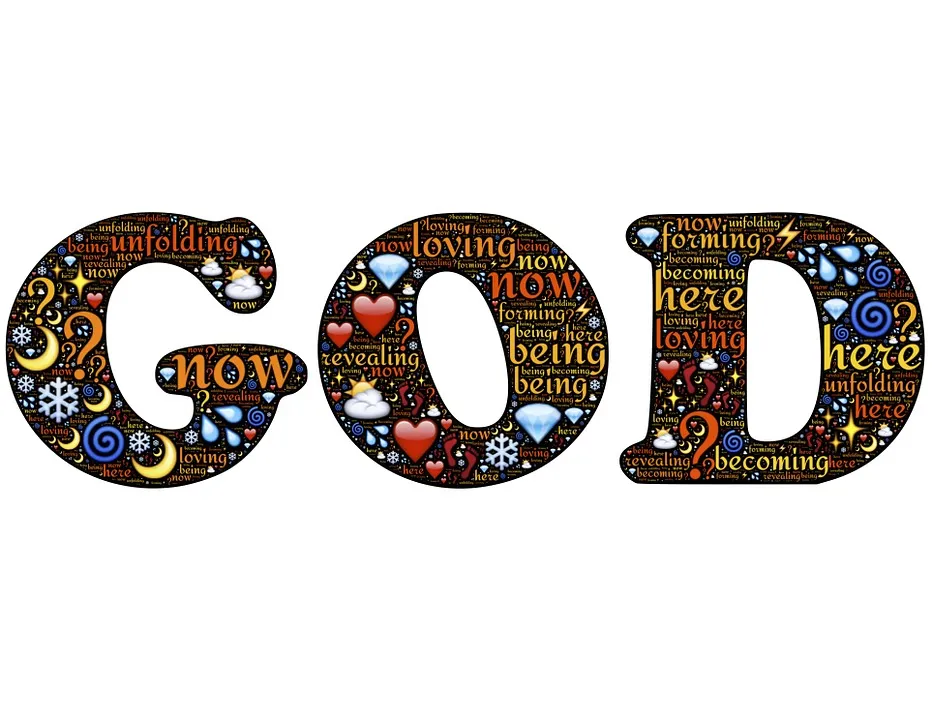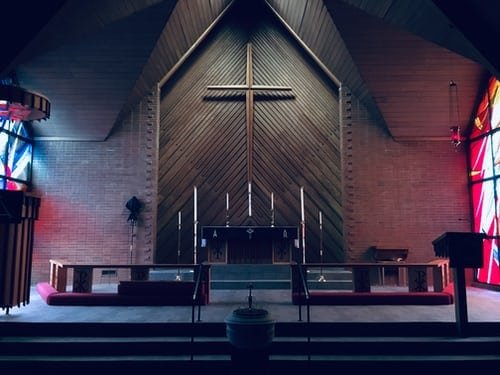Throughout history, humanity has tried to reconcile the idea of an all-powerful, all-knowing deity with the existence of life’s imperfections. From philosophical musings to theological debates, the question remains: does God make mistakes? In this article, we delve into this existential question and explore the underlying concepts of divine perfection, human limitations, and religious beliefs. Keep reading to gain a deeper understanding of this eternal query.
The Concept of Divine Perfection

When discussing the question of whether God makes mistakes, one must first grapple with the concept of divine perfection. Most religious beliefs hold that God is perfect in every way, including moral perfection. This means that God cannot make mistakes or act in ways that would contradict his divine nature.
The idea of divine perfection can be a difficult one to understand, especially when confronted with the imperfections and hardships of human life. However, many religious teachings emphasize the importance of trusting in God’s plan and recognizing that our understanding of the world is limited by our human perspective.

Some may argue that the concept of divine perfection raises the question of why God would allow evil or suffering to exist in the world. This question is often referred to as the problem of evil and is one of the most common theological questions. While there is no one-size-fits-all answer to this question, many religions offer guidance and support in dealing with life’s challenges.
Overall, the concept of divine perfection is a central part of most religions’ belief systems. While its complexities can be difficult to fully comprehend, it serves as an important reminder to trust in a higher power and seek spiritual guidance on life’s journey.
Here are some important points to keep in mind when understanding the concept of divine perfection:
- Religious teachings hold that God is perfect in every way, including moral perfection.
- Recognizing the limits of human understanding is crucial when grappling with the complexities of divine perfection.
- The problem of evil is a common philosophical and theological question that raises issues about the concept of divine perfection.
- Trusting in a higher power and seeking spiritual guidance can help individuals navigate life’s challenges.
The Question of God’s Plan
Have you ever wondered about God’s plan and whether or not He makes mistakes? It’s a theological question that has been debated for centuries across different religious beliefs and spiritual guidance.
One central concept in many religions is the idea of divine perfection. Many believe that God is all-powerful and all-knowing, and therefore His plans and actions must be perfect. However, this belief can lead to moral dilemmas and questions about human limitations.
One way to approach this question is to consider the role of free will in theology. If humans have free will, then it implies that our actions may deviate from God’s plan. But if we believe that everything is predetermined, then it raises questions about accountability and the responsibility of human actions.
Reconciling religious doctrine with the imperfections of life can also be challenging. How do we make sense of tragedy and suffering if we believe in a perfect and omnipotent God? Theologians have explored different interpretations and explanations of God’s plan, but it remains a subject of debate and questioning.
Yet, even with these theological debates and existential questions, it’s important to remember the value of spiritual journeys and the search for divine wisdom. Wrestling with these questions can deepen our faith and offer insight into our own moral compass.
As a Christian, it’s essential to recognize that we may not have all the answers, and it’s okay to have doubts and questions. In fact, it’s through these inquiries that we can grow in our faith and gain a deeper understanding of God’s design.
The Limits of Human Understanding

As humans, we experience limitations in our ability to understand and comprehend the world around us. We can only process so much information at once, and sometimes we are limited by our own perspectives and biases. These limitations can also affect our understanding of spiritual and religious concepts, including the idea of divine perfection and whether or not God makes mistakes.
Here are a few ways in which our limitations as humans can impact our understanding of theology and spirituality:
-
Our understanding of divine perfection is limited by our own definitions of perfection. We may view perfection as an absence of flaws or mistakes, but what if the concept of perfection is different in the eyes of a higher power? Our own understanding of perfection may not align with what God sees as perfect.
-
We may have difficulty understanding the idea of God’s plan for our lives. We may question why certain events happen or why we experience suffering. However, it’s important to remember that our perspectives are limited to our own human experience. From a divine perspective, there may be a greater plan at work that we simply cannot comprehend.
-
Our understanding of free will may also be limited. We may wonder why God allows us to make mistakes and experience pain if he is all-knowing and all-powerful. However, the concept of free will is a complex one that can be difficult to fully comprehend. It’s important to remember that our actions and choices have consequences, and God may allow us to experience these consequences as a form of discipline or guidance.
While these limitations can be frustrating, it’s important to remember that questioning and wrestling with these big theological questions is a normal part of a faith-based journey. It’s okay to have doubts and uncertainties – in fact, these struggles can lead to deeper spiritual insights and a stronger relationship with God. As it says in Proverbs 3:5-6, “Trust in the Lord with all your heart, and do not lean on your own understanding. In all your ways acknowledge him, and he will make straight your paths.”
In summary, our understanding of divine perfection, God’s plan, and free will may be limited by our own human perspectives. It’s important to acknowledge these limitations and continue to wrestle with these challenging questions in a way that is faithful and authentic.
The Role of Free Will in Theology
As humans, we often struggle to make sense of the world around us and the events that unfold in our lives. When faced with difficult circumstances, it’s common to question whether or not God is responsible, leading to the age-old question: does God make mistakes?
While many believe in the concept of divine perfection, it’s important to consider the role of free will in shaping our experiences. Christianity teaches that God bestowed upon humanity the gift of free will – the ability to make choices and shape our own destinies. This means that while God has a plan for us, we are also able to make choices that may lead us down a different path.
« What Does the Bible Say What Happens After You Die: A Friendly Guide to Afterlife
What Does the Bible Say About Focusing on Yourself: A Fresh Perspective »
Of course, this raises additional questions. If God has a plan, how does our free will fit into the equation? Does God take our choices into account when determining the course of our lives, or is his plan unaffected by our actions?
These are complex theological questions that have been debated for centuries. Some argue that God’s plan is flexible and changes based on the choices we make, while others believe that everything is predetermined and our choices are merely an illusion.
Regardless, these debates highlight the human limitations when it comes to understanding the divine. We are limited by our own experiences and perspectives, and so it’s important to approach these questions with humility and an open mind.
Ultimately, the role of free will in theology is a key component of many religious beliefs. It reminds us that we have the power to shape our own lives, but also underscores the importance of seeking spiritual guidance and striving to align our choices with God’s plan.

As we navigate life’s challenges and moral dilemmas, it’s important to remember that these theological debates are not simply abstract concepts – they have real-world implications on how we live our lives. Wrestling with these questions can help us better understand our place in the world and our relationship with the divine, ultimately leading us towards greater spiritual enlightenment and divine wisdom.
Reconciling Religious Doctrine with Life’s Imperfections
As a Christian, one of the most challenging theological questions to grapple with is reconciling our religious beliefs with the imperfections of life. Life can be messy, chaotic, and at times, seemingly unfair. It’s easy to feel disillusioned and discouraged when things don’t go as planned. People often wonder, “does God make mistakes?”
Here are some reflections to help you reconcile religious doctrine with life’s imperfections:
-
Recognize that God is perfect, but we are not.
As humans, we are limited in our understanding of the divine. God’s plan is perfect, but our perception of it is often flawed. It’s essential to remember that our humanness limits our comprehension of God’s ways. We need to trust that God’s plan is perfect, even if we don’t understand it. -
Understand the Role of Free Will in Theology.
God’s plan for humanity was not a predetermined, fixed destiny that we were powerless to resist. Rather, God created us with free will. Our choices and actions can impact our lives and the lives of those around us. This free will can lead to imperfections, but it’s also what allows us to experience love, joy, and growth. -
Find meaning in life’s challenges.
Suffering and hardship can be among life’s most transformative experiences. In times of difficulty, we often discover our capacity for resilience, strength, and perseverance. God can use these experiences to shape and mold us into the person we were meant to be. It’s important to remember that even in the most challenging moments, God is with us and using those experiences to build us up. -
Acknowledge the importance of wrestling with these questions.
As we navigate the complexities of life, wrestling with these existential and theological questions becomes increasingly important. It’s crucial to remember that questioning your faith does not show a lack of faith; instead, it is a sign of spiritual growth and maturity. There is beauty in the journey of seeking answers to life’s biggest questions.
In summary, although we may sometimes struggle to reconcile life’s imperfections with our religious beliefs, it’s essential to remember that God’s plan is perfect, even if we don’t always understand it. Our capacity for free will allows us to create our own imperfections in life, but it also allows us to experience love and growth in a way that helps us become the best versions of ourselves. Through the process of wrestling with life’s ultimate questions, we can discover the depth of our faith and the meaning behind God’s divine plan.
The Importance of Wrestling with These Questions

As you continue to explore some of life’s biggest questions, it can be easy to feel overwhelmed or frustrated. You may feel like you’ll never truly understand the concept of divine perfection or God’s plan for the world. You may struggle with free will and the idea of reconciling religious doctrine with the imperfections of everyday life.
But here’s the thing: wrestling with these questions is an essential part of any spiritual journey. It’s not about finding all the answers or achieving some sort of perfect understanding. Rather, it’s about engaging with the wonder and mystery of the world around us, and allowing ourselves to be transformed by the process.
As you explore the depths of your faith and grapple with these complex ideas, you’ll be forced to confront some hard truths about yourself and the world around you. You’ll start to see the ways in which your actions and choices impact others, and you’ll be challenged to strive for greater compassion, wisdom, and understanding.
In many ways, this process of questioning is what makes religion and spirituality so meaningful. It’s not about blindly accepting dogma or following a strict set of rules. Instead, it’s about engaging with the world in a more profound and thoughtful way, and using our beliefs and traditions as a compass to guide us through life’s challenges.
So if you’re struggling with some of these big questions, remember that it’s okay to feel unsure or confused. Don’t be afraid to seek out guidance from others, whether that means talking to your pastor, reading books on theology and philosophy, or engaging in deep conversations with others in your faith community.

At the end of the day, remember that your spiritual journey is a deeply personal one, and there’s no one-size-fits-all approach when it comes to navigating life’s complex moral and philosophical dilemmas. Trust in your own intuition and inner guidance, and continue to explore the mysteries of the world around you.


















